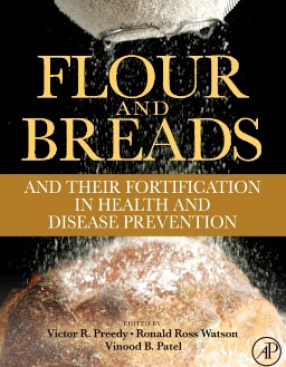Flour and Breads and Their Fortification in the Health and Disease Prevention
Their complex nature provides energy, protein, minerals and many other macro- and micronutrients. However, consideration must be taken of three major aspects related to flour and bread. The first is that not all cultures consume bread made from wheat flour. There are literally dozens of flour types, each with their distinctive heritage, cultural roles and nutritive contents. Second, not all flours are used to make leavened bread in the traditional (i.e., Western) loaf form. There are many different ways that flours are used in the production of staple foods. Third, flour and breads provide a suitable means for fortification: either to add components that are removed in the milling and purification process or to add components that will increase palatability or promote health and reduce disease per se. Flour and Breads and their Fortification in Health and Disease Prevention provides a single-volume reference to the healthful benefits of a variety of flours and flour products, and guides the reader in identifying options and opportunities for improving health through flour and fortified flour products.
Key Features * Examines those flour and bread related agents that affect metabolism and other health-related conditions. * Explores the impact of compositional differences between flours, including differences based on country of origin and processing technique. * Includes methods for analysis of flours and bread-related compounds in other foods. Bread and flour-based foods are an important part of the diet for millions of people worldwide.
Get it now and save 10%
BECOME A MEMBER







Bibliographic information